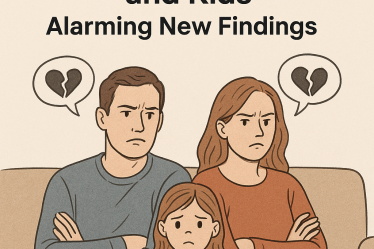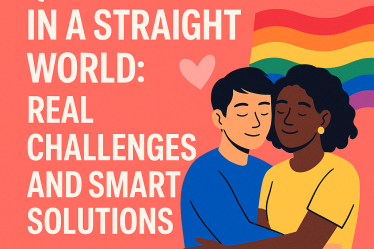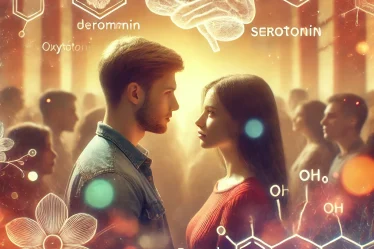
Falling in love feels like magic. But how long does it actually take?
If you’re dating, you’ve probably asked yourself this question—especially when one person seems to be catching feelings faster than the other. Some people say it’s instant. Others say it takes time. So what’s the truth?
Psychologists have studied this exact question, and the answer is more nuanced than most of us think. In this article, we’re breaking down what it really means to fall in love, how long it typically takes, and the key factors that make it happen faster—or slower.
Let’s clear up the mystery, so you know what to expect as you navigate new relationships.
What Does It Really Mean to “Fall in Love”?
Before we talk timelines, we have to get clear on the definition. “Falling in love” isn’t just butterflies and staying up late texting. Psychologists define it as an emotional and physiological process involving:
- Passion (physical and emotional attraction)
- Intimacy (feeling close and understood)
- Commitment (the desire to stick with someone long-term)
This idea comes from Dr. Robert Sternberg’s Triangular Theory of Love, which is widely used in psychology.
Falling in love also triggers a chemical reaction in your brain. Dopamine (the pleasure chemical) and oxytocin (the bonding hormone) surge when we feel emotionally and physically connected to someone. That’s why love can literally feel addictive—your brain is wired to crave it.
How Long Does It Actually Take to Fall in Love?
There’s no single answer, but here’s what research shows:
- Men typically say “I love you” faster than women. One study found men take around 88 days, while women average 134 days to fall in love.
- A survey by Match.com showed that 38% of men report falling in love at first sight, compared to 28% of women.
But it’s not all about gender. Timing depends on:
- How often you see each other
- The depth of your conversations
- Emotional availability
- Whether you’re both open to love
Some couples fall in love in weeks. Others take months. And that’s normal.
What Speeds Up Falling in Love?
If you’re in the early stages of dating and things are moving fast, there are likely a few key factors at play:
- Strong emotional vulnerability — When two people open up quickly, love tends to form faster.
- High physical chemistry — Attraction boosts dopamine, which amplifies feelings.
- Frequent time spent together — More shared experiences = faster bonding.
- Aligned values or life goals — When things “just click,” it’s easier to fall hard.
Also, your attachment style matters. People with a secure attachment style are more likely to feel and express love without fear. Those with avoidant or anxious styles might hesitate or rush in too fast, depending on their past experiences.
Is Love at First Sight Real?
Many believe in it—but psychologists say it’s more complex.
You can feel a strong connection the moment you meet someone. Your brain might register high attraction and even light up in areas linked to love. But real love—the kind that lasts—usually takes time to grow.
What you’re feeling instantly is often:
- Intense physical attraction
- Curiosity or admiration
- A feeling of “familiarity” or comfort
These can be powerful, but lasting love typically develops through repeated emotional experiences, not just a look across the room.
Signs You’re Falling in Love
Wondering if it’s happening to you? Here are some research-backed signs:
- You think about them constantly—even when you’re busy
- You care deeply about their happiness and well-being
- You’re comfortable being yourself around them
- You feel excited about the future with them in it
- You prioritize spending time with them
- You miss them more than usual when you’re apart
- You feel a mix of peace and excitement when you’re together
- You start planning things months in advance—with them in mind
- You feel safe being emotionally vulnerable with them
- You want to tell them important news—good or bad—first
These aren’t just warm fuzzies. They’re indicators that your emotional and mental focus is shifting toward a deeper bond.
What If You’re Falling Faster Than They Are?
This is super common, and it doesn’t mean the relationship is doomed.
Love rarely develops at the exact same pace for two people. The key is communication. If you’re feeling more invested, talk about it openly—but without pressure. Ask how they’re feeling and where they see things going.
Here’s what you can do:
- Check in with your expectations—are they realistic for the stage you’re in?
- Give them space to catch up emotionally
- Focus on connection, not timelines
- Don’t panic if they’re not ready to say “I love you” yet—it doesn’t mean they won’t
In some cases, mismatched pacing is a red flag. But in many, it’s just two people syncing up at different speeds.
Final Take
Falling in love isn’t a race—and it doesn’t follow a script. On average, it takes a few months, but it depends on the people, the connection, and the context.
If you’re dating, focus less on counting the days and more on building something real. Stay emotionally available, communicate clearly, and let things unfold naturally. The timeline will take care of itself.
And remember: love that’s real doesn’t need to be rushed.



